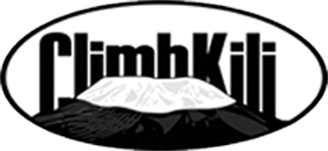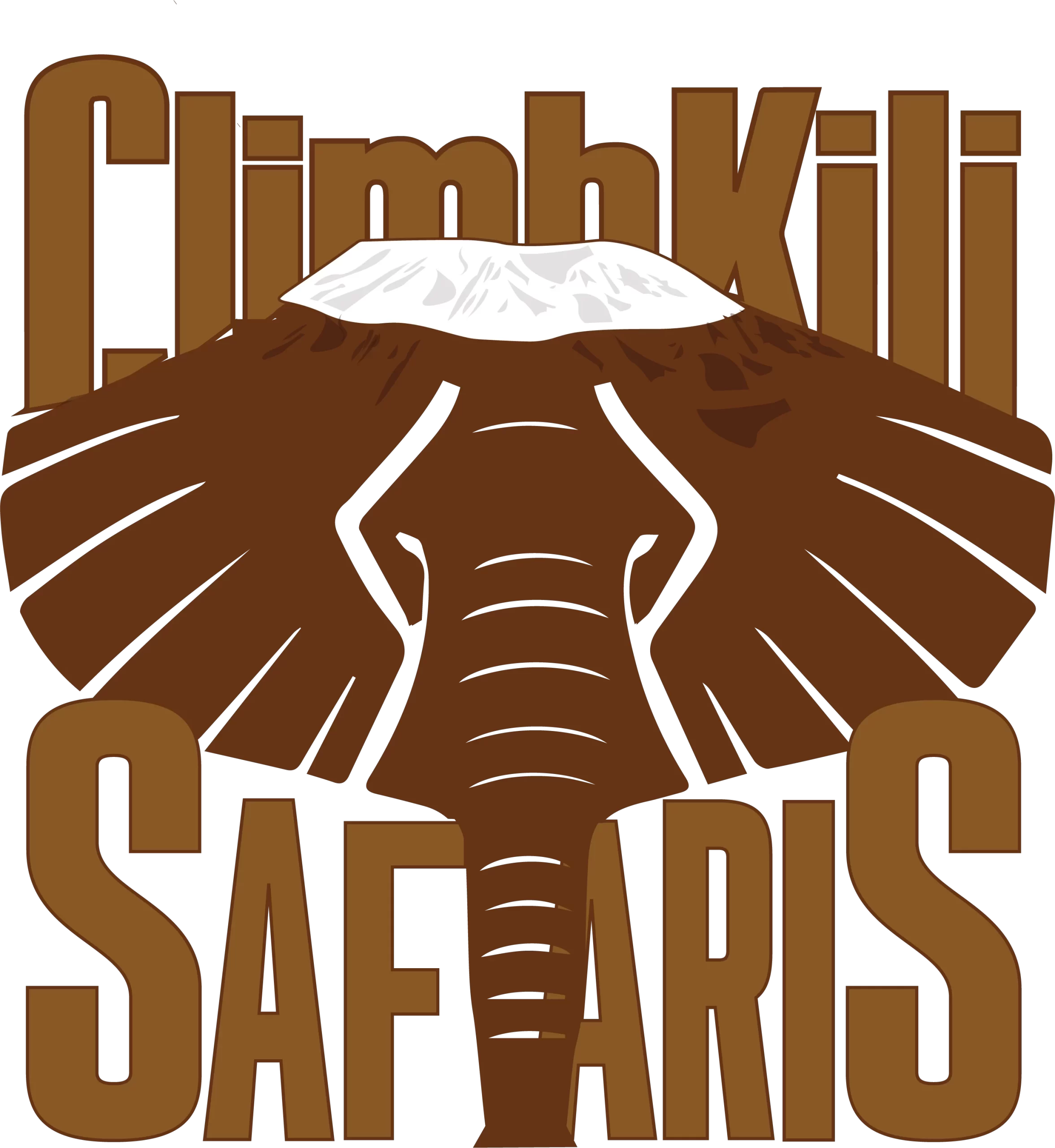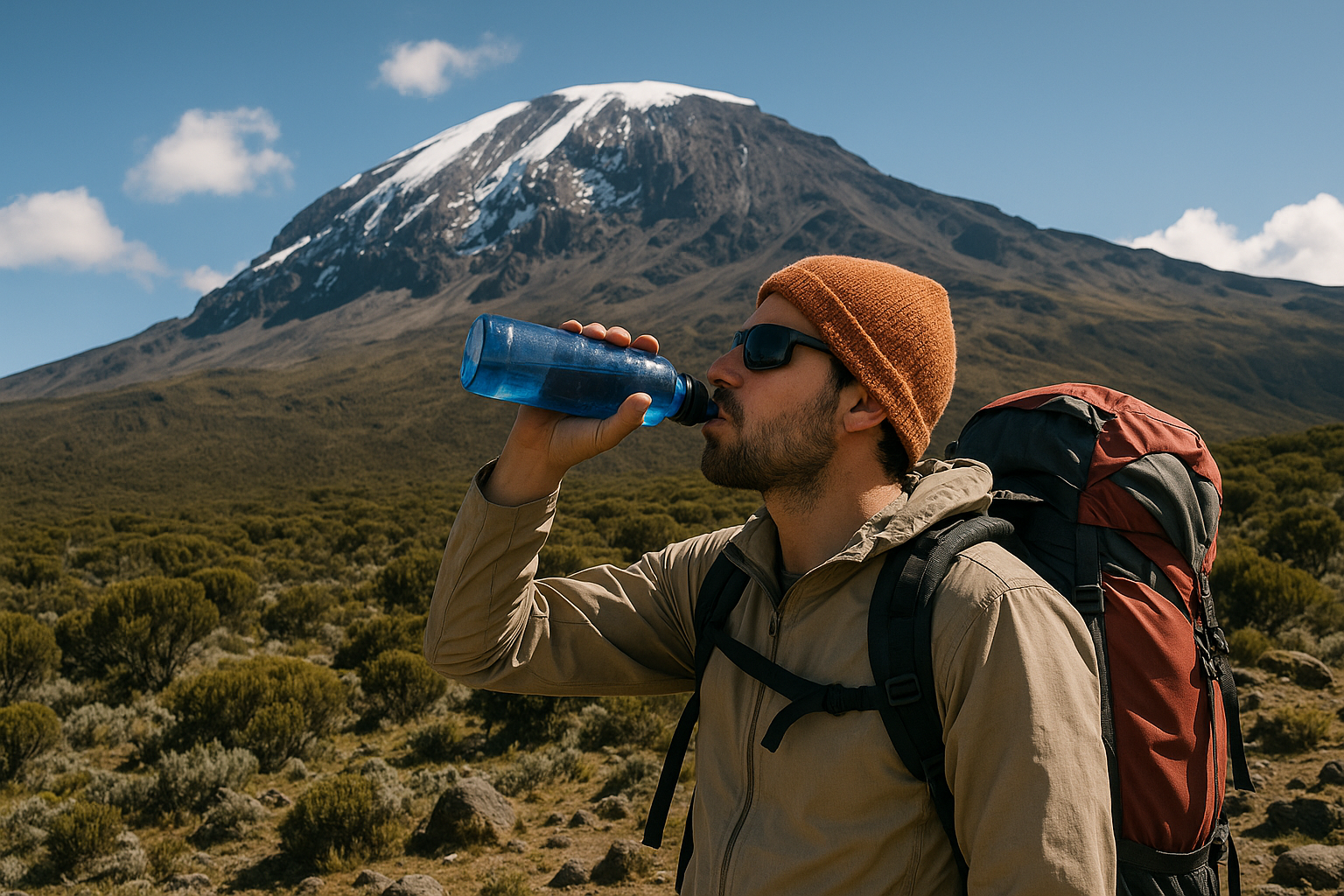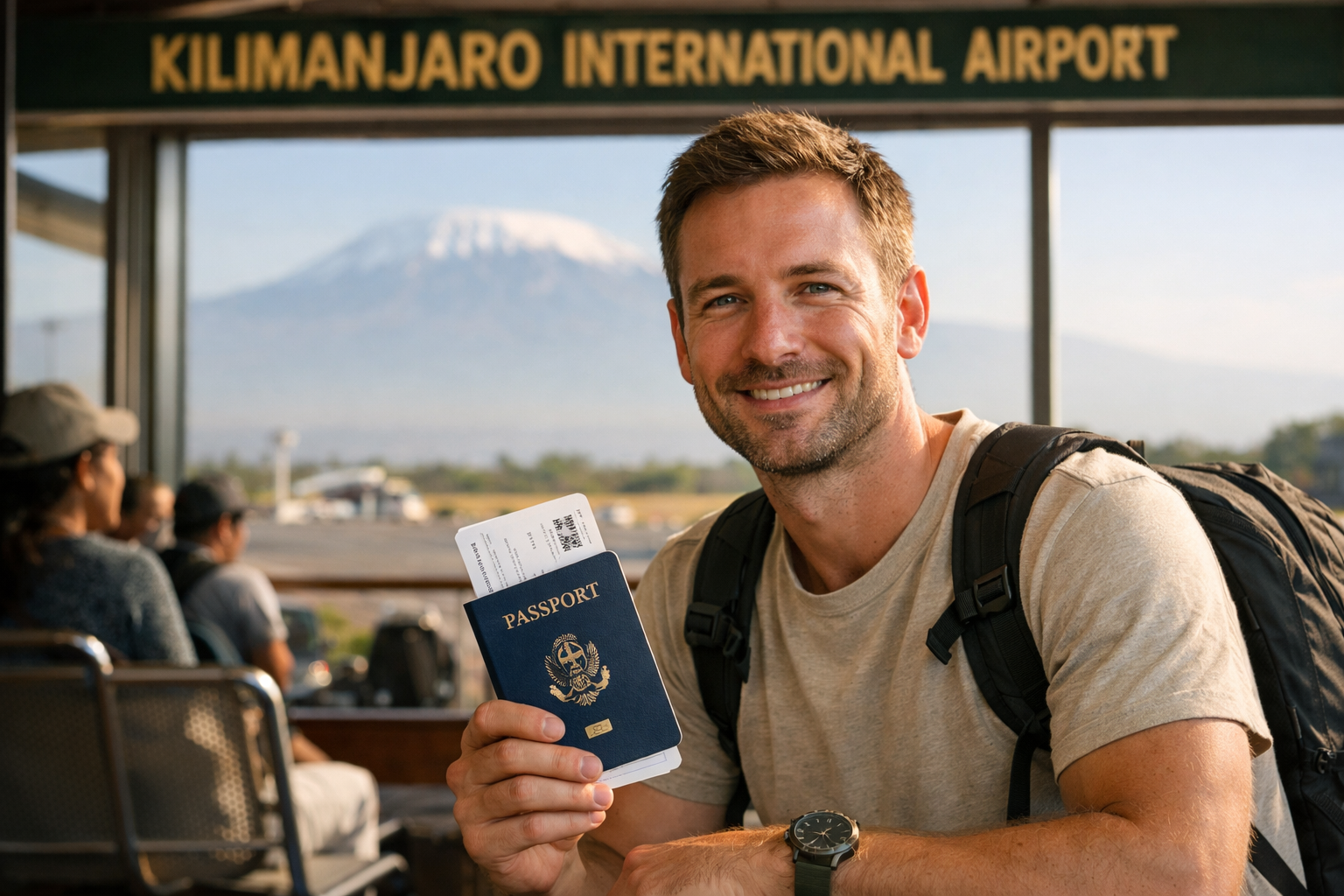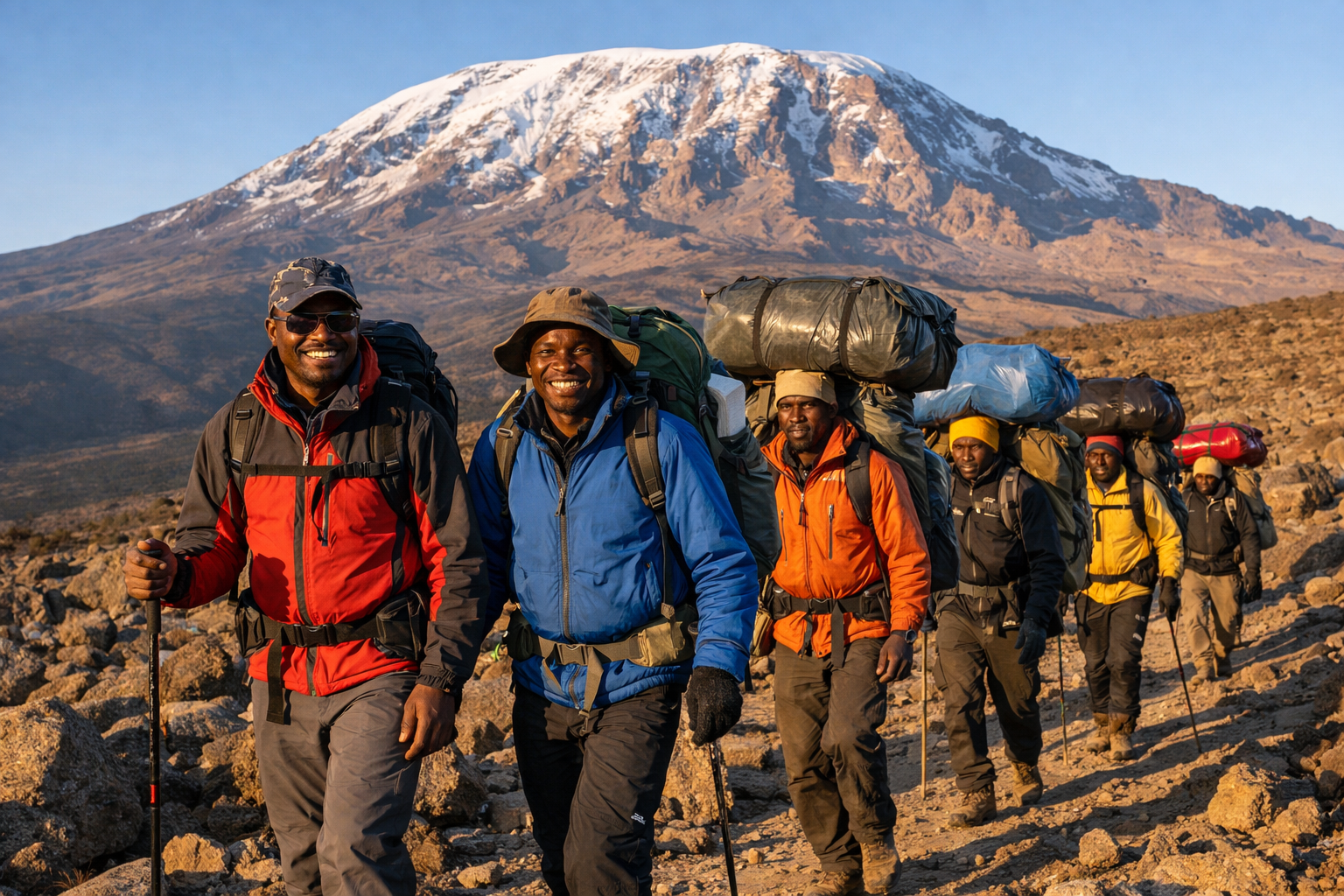When you’re trekking up Africa’s tallest mountain, staying hydrated is essential—but is the drinking water safe? The short answer is: yes, it is—when you climb with a responsible outfitter like Climb Kili.
We take water safety seriously and use a multi-step purification process to ensure that every drop you drink on the mountain is clean, safe, and refreshing.
Where Does the Water Come From?
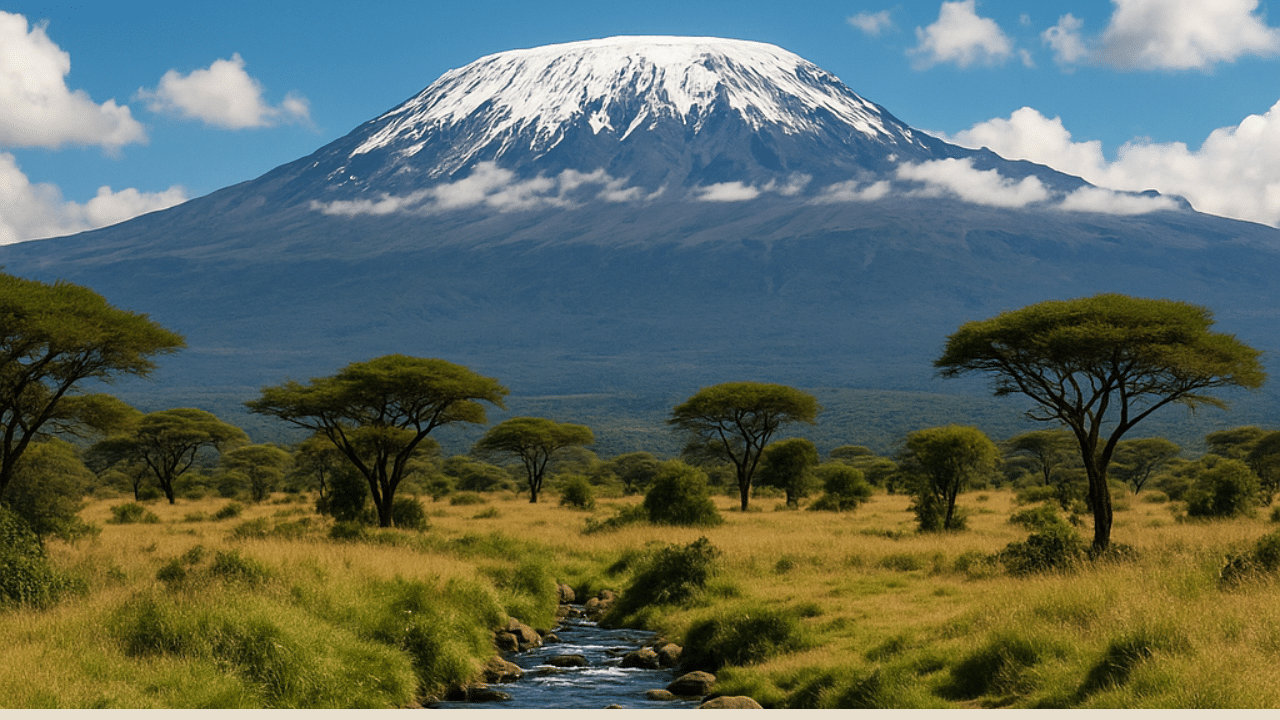
Water on Kilimanjaro is typically sourced from local streams, springs, or glacial runoff along the route. While naturally beautiful, this untreated water isn’t safe to drink directly due to the presence of bacteria and contaminants.
That’s why we filter and treat all water before it’s served to trekkers.
Water Purification Methods Used on Kilimanjaro
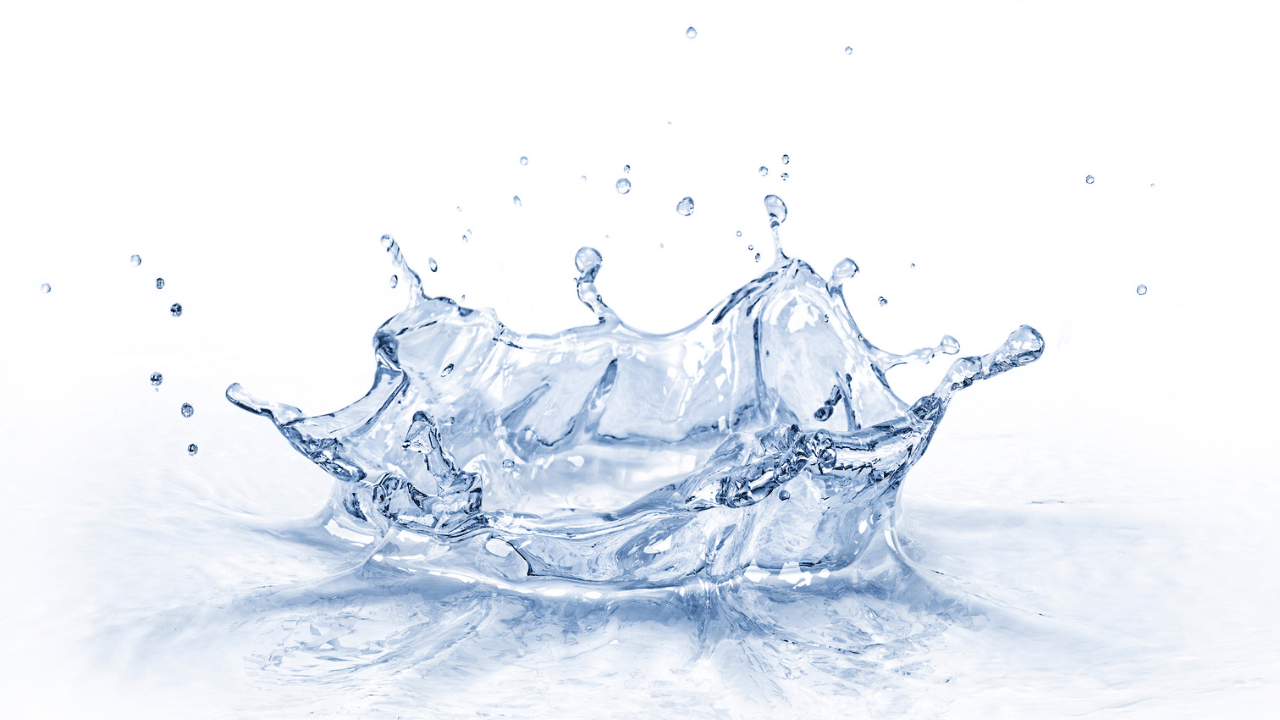
Climb Kili handles all water purification during your trek. Our dedicated support team ensures that water is consistently and safely treated at every camp using strict sanitation protocols.
At Climb Kili, we use a combination of purification techniques to ensure water safety at altitude:
1. Boiling
Water is boiled at camp to kill bacteria, viruses, and protozoa. This method is especially effective and commonly used during meal prep and for hot beverages.
2. Filtration
High-quality water filters remove sediments, parasites, and microorganisms from stream-sourced water. These portable filters are used at various camps to purify large volumes quickly.
3. Chemical Treatment (Chlorine or Iodine)
Some water is also treated with chlorine tablets to eliminate remaining pathogens. The concentration used is safe for human consumption and approved by global health standards.
Is the Water Safe to Drink?
Climb Kili ensures that purified water is distributed to each trekker twice daily—once in the morning before departure and again in the evening at camp. Whether you’re on the trail or relaxing in camp, our staff monitors your hydration needs throughout the climb.
Yes—once treated, the water on Kilimanjaro is safe to drink. We provide purified water at all meals and for your refillable bottles each morning and evening.
However, if you have a sensitive stomach or are prone to digestive issues, you can also bring:
- Personal water purification tablets (e.g., Micropur or Aquamira)
- A UV filter or portable water purifier like a SteriPEN
Hydration Tips for a Successful Climb
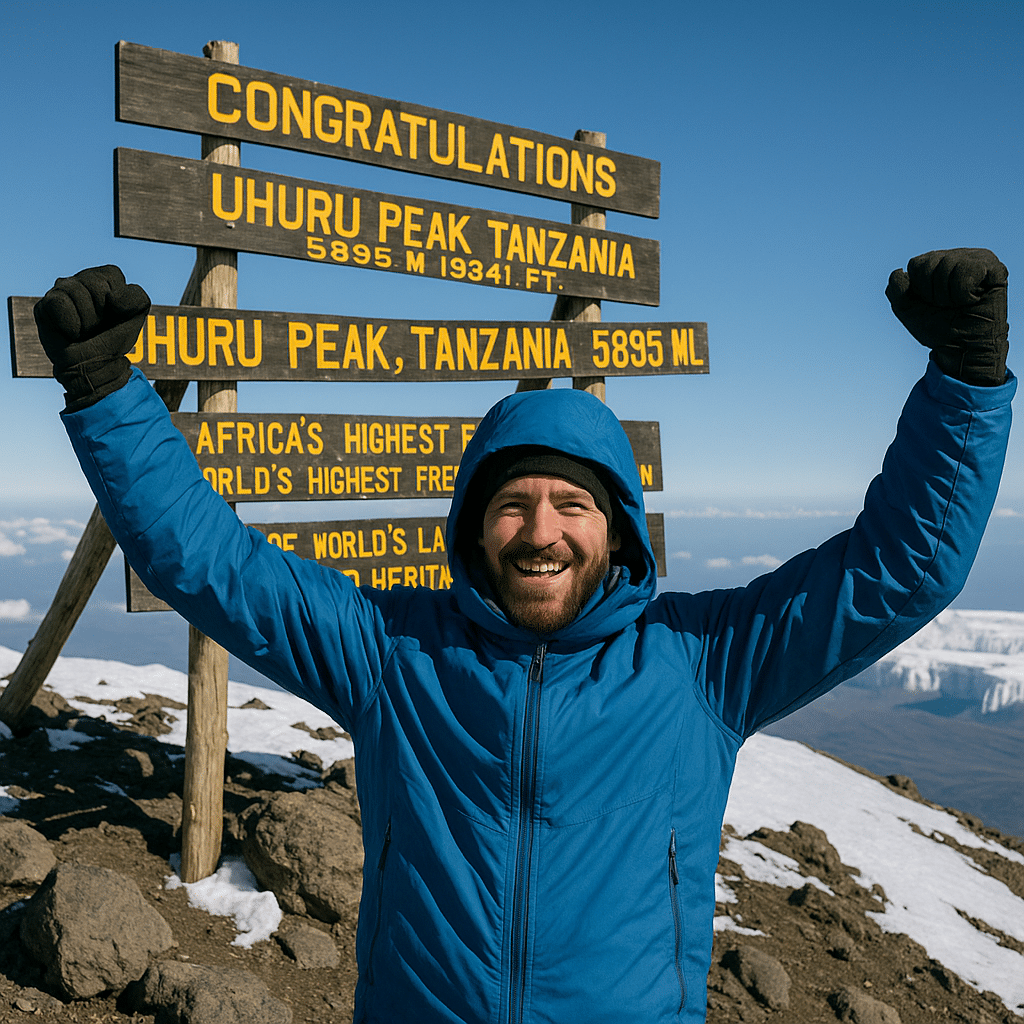
Proper hydration helps prevent altitude sickness, boosts energy levels, and supports acclimatization. Here’s how to stay safely hydrated on the mountain:
- Drink at least 4 liters per day, especially during high-exertion days
- Use insulated water bottles on summit night to prevent freezing
- Bring electrolyte tablets or flavored powders to make water more palatable
- Avoid caffeinated or sugary drinks that can dehydrate you
Our guides will remind you regularly to sip water—even if you don’t feel thirsty.
Why Climb Kili? Trusted Trekking. Safe Water.
At Climb Kili, your health is our priority. Our teams are trained in hygiene, hydration safety, and food preparation. We never cut corners with water quality and always ensure you have access to fresh, purified drinking water from Day 1 to summit.
Looking to climb with confidence? Join Climb Kili and stay safely hydrated on every step to Uhuru Peak.
